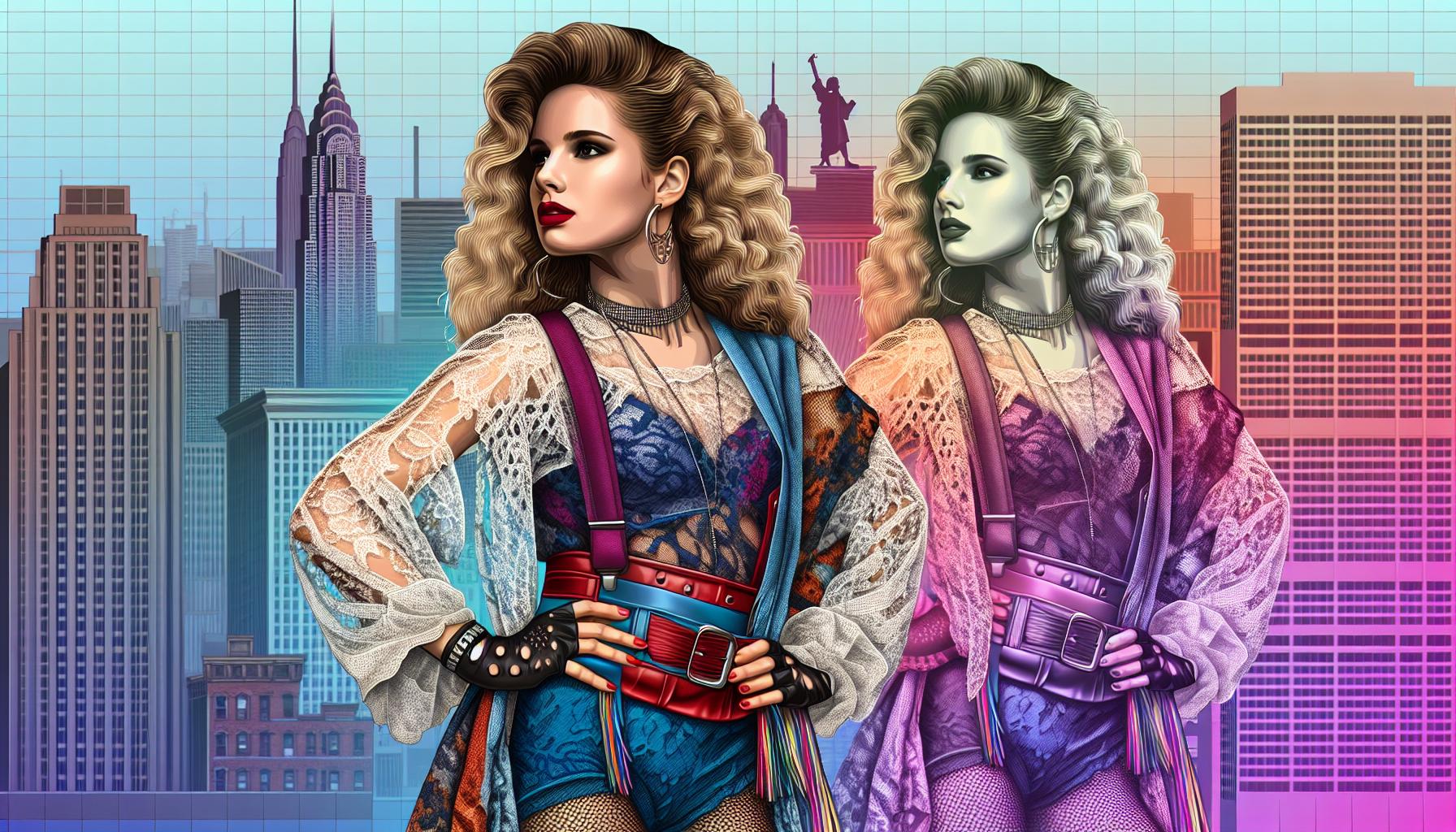The ’80s were a vibrant era that transformed music and pop culture, and no one embodied that spirit quite like Madonna. Bursting onto the scene with her unique style and undeniable talent, she quickly became a cultural icon. I remember how her songs dominated the airwaves, shaping the soundtrack of a generation and influencing countless artists who followed.
Madonna wasn’t just a singer; she was a trendsetter. From her bold fashion choices to her provocative performances, she challenged societal norms and pushed boundaries. As I explore her impact on the ’80s, I’ll delve into how she redefined femininity and sexuality in music, leaving a legacy that still resonates today. Join me as we celebrate the Queen of Pop and her unforgettable journey through this iconic decade.
Key Takeaways
- Cultural Icon: Madonna emerged as a transformative figure in the 1980s, quickly becoming synonymous with music innovation and cultural change.
- Provocative Themes: Her bold approach to femininity and sexuality in music challenged societal norms and redefined gender roles during the decade.
- Groundbreaking Albums: Key releases like “Like a Virgin,” “True Blue,” and “Like a Prayer” showcased her musical versatility and artistic evolution, solidifying her status as pop royalty.
- Fashion Influence: Madonna’s iconic fashion choices, including layered jewelry and lace gloves, blurred the lines between music and style, inspiring trends that persist today.
- Legacy of Empowerment: Her music and performances laid the groundwork for future generations of artists, promoting themes of self-expression and empowerment that continue to resonate in today’s pop culture.
- Ongoing Relevance: Madonna’s impact remains significant in contemporary music, with her songs frequently covered and her style influencing current trends, ensuring that her legacy as the Queen of Pop endures.
Años 80:Aoysj-B2hgq= Madonna
Madonna emerged as a powerhouse in the music industry during the 1980s. She quickly became synonymous with innovation and reinvention. Her debut album, “Madonna,” released in 1983, featured hit singles like “Holiday” and “Lucky Star,” showcasing her pop prowess.
Madonna’s second album, “Like a Virgin,” released in 1984, elevated her status further. The title track and its accompanying performance at the MTV Video Music Awards solidified her status as a cultural phenomenon. The bold imagery and provocative themes in her works challenged traditional views, allowing her to redefine societal standards for women in music.
Throughout the decade, Madonna’s distinct fashion statements—layered jewelry, lace gloves, and petticoats—blurred the lines between music and fashion. Her ability to consistently evolve her image kept audiences captivated. Albums like “True Blue” and “Like a Prayer” introduced diverse musical styles, from dance-pop to gospel, reflecting her versatility and artistic depth.
She utilized music videos as a form of artistic expression, often pushing boundaries and sparking debates. Tracks such as “Vogue” and “Express Yourself” celebrated self-expression and empowerment, resonating with fans. By the end of the 1980s, Madonna had not only influenced music but had established herself as a cultural icon, earning the title of the “Queen of Pop.” Her impact continues to inspire artists across generations.
Cultural Impact of Madonna in the 1980s

Madonna’s influence during the 1980s reshaped music and fashion while challenging societal norms. Her innovative approach to artistry established her as a central figure in pop culture.
Influences on Music and Fashion
Madonna’s music transformed the 1980s soundscape with catchy melodies and relatable themes. My exploration of tracks like “Material Girl” and “Like a Virgin” reveals her knack for blending pop with elements of dance and rock. Her bold fashion choices, such as lace, mesh, and religious iconography, set trends that countless fans and artists emulated. Various fashion designers, including Jean-Paul Gaultier, gained recognition for their collaborations with her, further blurring lines between music and high fashion.
Shaping Pop Culture Norms
Madonna challenged traditional gender roles through her music and performances. My analysis shows how she portrayed female empowerment, sexuality, and independence, encouraging women to embrace their identities. Her performances sparked conversations about sexuality and femininity, breaking taboos in a conservative era. As I observe, this shift not only influenced her contemporaries but also paved the way for future artists to express themselves authentically. Madonna’s impact during the 1980s cemented her status as a revolutionary figure, inspiring generations to embrace creativity and self-expression.
Key Albums and Hits

Madonna’s discography in the 1980s features groundbreaking albums and iconic singles that have left an indelible mark on pop music. Each release reflects her evolution as an artist and showcases her influence on the genre.
Notable Singles from the Era
- “Holiday” – This upbeat track from her debut album, Madonna, released in 1983, became her first major hit, cementing her presence in the music industry.
- “Lucky Star” – A defining single that reached the top of the charts, “Lucky Star” showcased Madonna’s blend of pop and dance beats.
- “Material Girl” – Released in 1984, this song became an anthem for the decade, encapsulating the consumerist culture of the 1980s.
- “Like a Virgin” – The title track from her second album, this 1984 hit reinforced Madonna’s status as a provocative figure and fueled public conversations about sexuality.
- “Vogue” – An instantly recognizable hit from 1990, “Vogue” celebrated the art of posing and featured the famous “Vogue” dance, solidifying her status as a dance icon.
- Madonna (1983) – Her debut album introduced the world to her infectious pop sound and unique style, laying the groundwork for her career.
- Like a Virgin (1984) – This album catapulted Madonna to superstardom, featuring hits that challenged societal norms, particularly during its celebrated MTV performance.
- True Blue (1986) – This third album highlighted her evolving artistry, with hits like “Live to Tell,” showcasing deeper emotional themes and a more mature sound.
- Like a Prayer (1989) – This influential album pushed boundaries with its incorporation of spiritual elements and controversial themes, demonstrating Madonna’s willingness to tackle complex subjects.
- The Immaculate Collection (1990) – A greatest hits compilation that encompassed her most significant tracks from the 1980s, it solidified her legacy as a pop cultural icon.
Legacy of Madonna’s 1980s Music

Madonna’s music and cultural influence from the 1980s continue to resonate strongly. Her groundbreaking approach transformed the music industry and established a foundation for future generations of artists.
Influence on Future Artists
Madonna’s bold approach to music and identity paved the way for countless artists. She inspired performers like Britney Spears and Lady Gaga, who adopted her fearlessness in blending genres and personas. Artists such as Beyoncé and Ariana Grande emulate her ability to challenge societal norms while maintaining chart-topping success. The impact of her influential anthems inspired the empowerment movements seen in contemporary music, creating a legacy that emphasizes self-expression and independence.
Ongoing Relevance in Today’s Music Scene
Madonna’s influence remains evident across today’s music landscape. Her signature style and themes of empowerment and sexuality resonate in modern pop music. Current artists frequently reference her iconic hits, while fashion trends heavily borrow from her 1980s aesthetics. Streaming platforms amplify her classics, maintaining their presence on charts and playlists. Madonna’s ability to evolve artistically ensures her music stays relevant, proving that her legacy as the Queen of Pop endures in today’s industry.
Queen of Pop
Madonna’s influence on the 1980s is undeniable. She not only redefined pop music but also challenged societal norms in ways that resonate even today. Her fearless approach to artistry and self-expression paved the way for future generations of musicians.
I find it inspiring how her bold fashion choices and empowering themes continue to inspire artists across various genres. Madonna’s ability to reinvent herself while staying true to her core message of empowerment is a testament to her status as the Queen of Pop.
Her legacy remains vibrant in today’s music scene, reminding us of the power of creativity and the importance of breaking boundaries. Madonna’s impact will forever be a significant chapter in the story of pop culture.

